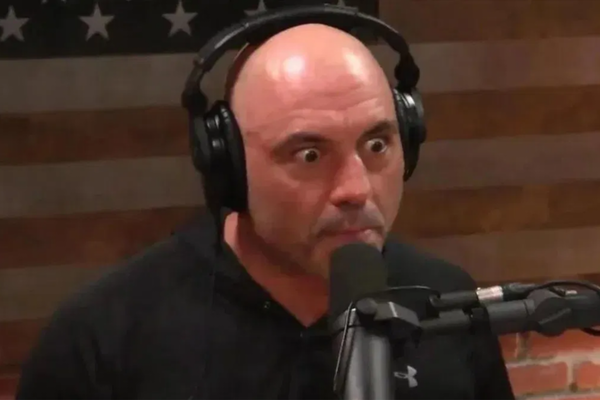
via Imago
via YT

via Imago
via YT
The ’90s was a decade that largely defined current trends; music, clothes, media, and practically everything that is now trending etched its roots at this time. However, one element that did not survive the passage of time is the rental of physical films. Once a $3 billion-worth company, Blockbuster ruled the video rental game. However, by the late 2000s, the company saw a major decline that saw them file for bankruptcy protection in 2010.
It was a downfall that no one saw coming. Definitely not Joe Rogan. On the latest edition of his Joe Rogan Experience podcast, Quentin Tarantino and Roger Avary joined the UFC commentator. So when you have such amazing directors as your guests, there’s no wonder that ‘movies’ would be a hot topic of discussion. That is exactly what happened in this edition, as Tarantino and Avery revealed that they always loved films and even worked together at a video rental store back in the 1980s. However, the topic of video rentals surely made Rogan nostalgic as he shared his amazement at the demise of ‘Blockbuster.’
ADVERTISEMENT
Article continues below this ad
Joe Rogan discusses Blockbusters downfall with Quentin Tarantino and Roger Avary
Seeing that the movie retailer was one of the biggest companies in the world back then, Joe Rogan exclaimed that he did not see the company going bankrupt ever in their lifetime. “It’s crazy. Like, you would have never thought back then that that industry would completely vanish. You thought Blockbuster Video was going to be around forever.” Adding to this, Roger Avery chimed in by admitting that he did not expect traditional movie film rolls to go out of use in the future as well. “I didn’t think film was going to vanish either.”
It is a stunning downfall that Rogan also talked about on JRE #1293 with Andrew Santino, years before the aforementioned podcast episode. While discussing the rise of Netflix and how people who might’ve invested in the company back then must’ve been earning major money right now through their stocks, it made Rogan reminisce about Blockbuster again.
Once a platform that dominated over Netflix, Rogan was amazed at how soon thousands of Blockbusters closed in less than a decade. He said, “They went from 4855 stores in 2008 to one store in 2018. That is the craziest demolition of a business I’ve ever heard. What other business in our lifetimes vanished like that?”
The rise and fall of Blockbuster stores in the United States pic.twitter.com/swewYRwPKC
— Historic Vids (@historyinmemes) November 23, 2023
ADVERTISEMENT
Article continues below this ad
Blockbuster took shape in 1985 in Dallas, Texas, under the vision of David Cook, who transformed the concept of video stores. What set Blockbuster apart was its focus on technology to manage inventory, its wide range of films, and its family-friendly atmosphere. It quickly expanded in the United States, and by 1994, with more than 1,000 stores, Viacom acquired Blockbuster. This was a key moment for its consolidation as an entertainment powerhouse. In the mid-2000s, the chain hit its peak with no competition in sight. However, within a few years, the movie retailing goliath soon fell to its knees. But how did it happen?
What’s your perspective on:
Does the fall of Blockbuster make you miss the days of browsing aisles for movie nights?
Have an interesting take?
What caused the downfall of Blockbuster?
As technology advanced, Blockbuster faced its first enormous challenge: Netflix. Although Netflix offered to sell its innovative DVD-by-mail rental service, Blockbuster didn’t see the potential and opted to follow its traditional model. Despite attempts to adapt, the company was late to the digital market. Competition intensified, and customers’ transition to more convenient and modern platforms began to displace physical stores. 2010 marked the beginning of the end for Blockbuster. With unsustainable debt and a massive loss of customers, the company filed for bankruptcy.
ADVERTISEMENT
Article continues below this ad
Dish Network acquired the remnants of Blockbuster in hopes of reviving it, but the market had already changed. By the end of 2013, almost all stores closed their doors, ending an era of entertainment based on the physical rental of movies. Today, there is only one Blockbuster store left in Bend, Oregon. This last vestige has become a kind of sanctuary for those looking to relive the experience of renting a movie in person.
The store has managed to maintain its place in popular culture, attracting tourists and nostalgics alike who want to reminisce about the days when Blockbuster was synonymous with entertainment. Bend’s shop is more than a business; it’s a symbol of resistance and a time when choosing a film was a collective experience. What do you think of this tragic downfall? Do you have any particular memories related to Blockbuster? Let us know in the comments.
ADVERTISEMENT
ADVERTISEMENT
ADVERTISEMENT
ADVERTISEMENT


Does the fall of Blockbuster make you miss the days of browsing aisles for movie nights?